China is home to nearly at least an eighth of the world’s population. If you’re setting up a business in this country, you’re making the right decision. This is because of the potential number of customers that you can target for your marketing efforts. Of course, brand exposure is only half the battle. The other is public relations in China.
Chinese public relations is fraught with intricacies — both legal and cultural. Your ability to navigate these labyrinthine nuances of Chinese PR can make or break your entrepreneurial aspirations in this part of the world.
Need a cost effective TP (Tmall Partner) to sell in China?
We are an Official Tmall Partner e-commerce Agency. Our Services: E-Commerce, Search Engine Optimization, Advertising, Weibo, WeChat, WeChat Store & PR.
Get it right and your brand will stand out in the hearts and minds of the country’s large consumer base. Get it wrong, however, and you will experience what a public relations crisis looks like firsthand.
Luckily, we are here to help you with your China public relations campaign. Follow the tips mentioned in this article, and you will soon deem China the perfect place for developing your brand’s identity.
Why doing Public Relations in China Market Matters: Reputation and Brand Awareness of Foreign Companies
As of 2023, China’s population has grown to at least 1.45 billion people. More than its large population, China is also home to a growing middle class. In the last two decades, the country’s middle-class population has increased by nearly a factor of 10. A large population and a growing middle class are both key elements of a thriving consumer economy in China.
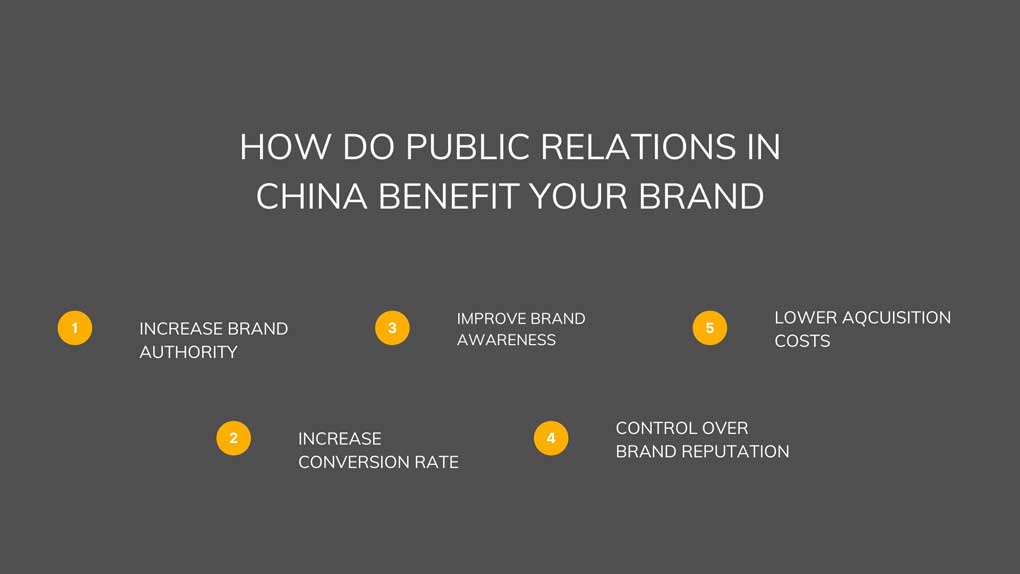
In any large consumer economy, businesses abound, regardless of niche. With businesses competing for the largest share of consumers in the Chinese market, it becomes more important for foreign companies to establish a presence. The businesses that establish themselves with the most potential consumers are the ones that survive and thrive in China.
Public relations enables companies to make consumers aware of their presence. Through public relations efforts fueled by a well-done China public relations strategy as well as marketing strategy, Chinese people can easily make businesses a part of their purchasing decisions.

Public relations in China also involve developing a reputation. Also integral to the development of brand reputation are public relations crisis aversion and quality customer service.
However, before diving in, be aware that gaining a following in China is not cheap. Unlike in the United States where PR costs $3,000 to $5,000 monthly, you would be looking at around $10,000 to $1 million per public relations campaign. According to Jing Daily, part of the reason behind the steep PR costs is the allocation of KOLs (Key Opinion Leaders).
How Public Relations in China Work
Public relations in China can be difficult for foreign companies without knowing anyone in the public relations industry. This is because business owners and Chinese media outlets there often use “guanxi” (connections) to get things done, which means you have to rely on your connections instead of trying pushy advertising or marketing tactics like manifesting offers through traditional media such as ads in China central television and billboards;
These methods may work wonders elsewhere, but they’re essentially meaningless when it comes down to getting results with potential customers who don’t know about your products yet – unless their friends tell them!
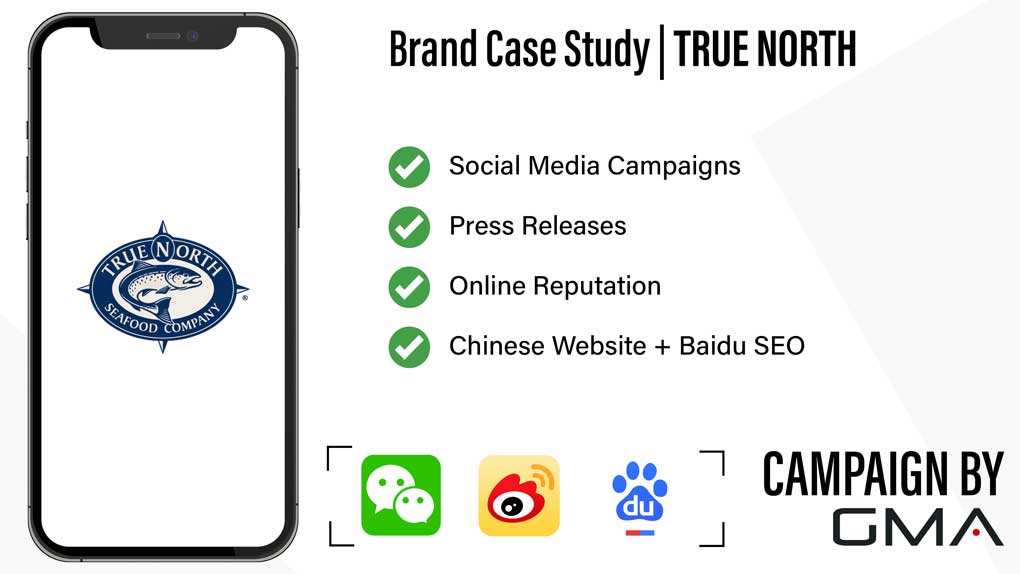
From a public relations perspective, the most important aspect is establishing relationships with key stakeholders. This way you can control what they say about your company and how it looks in print or on screen in both new media and traditional media outlets!
Remember that Chinese media are controlled by the government
The media outlets in China are all tightly controlled by state-owned enterprises, which means that newspapers have to focus on making money instead of reporting news objectively.
As a result, many journalists struggle with being critical of their own country’s government authorities because they fear losing access or being labeled unpatriotic if reports aren’t flattering enough.
The Chinese media is arguably more attracted to novelty stories that focus on human interest subjects like sensation or crime coverage, which tend not only to win popularity amongst consumers there but also have a higher chance of driving sales.
The Difference Between Public Relations in China vs PR in the West
Now that the similarities between Chinese and Western public relations have been established, let us discuss where they differ. Before working on your China public relations strategy and running your public relations campaign, here are some considerations to take to heart:
Chinese Regulations
The adoption of capitalist consumerism continues to grow in China as the years pass. Despite the paradigm shift in consumer thinking, China is one example of a country where centralization is taken to a whole new level.
In other words, the Chinese government and market forces involve themselves with nearly every facet of day-to-day life — from social media platforms through press releases, and digital marketing to press conferences and more. Hence, the government has in place policies for how marketing and public relations should be done in the country.
For instance, Chinese authorities heavily regulate what appears in any type of media. This means that you will have to ascertain that your industry is not one that the government prohibits. Many foreign companies separate their public relations and government affairs functions in China as they would in their home markets, but the PRC government and market forces’ control of any media outlet requires companies to manage public relations as they would treat government relations.
Public Relations in China through Chinese Media
Another area the Chinese government monitors and controls is the media. For this reason, you must exercise caution when it comes to what you add to your public relations campaign and marketing strategy. In particular, caution is key as regards press release statements.
Certain terms cannot be uttered as these can be either sensitive topics for the public or topics censored by the government. As a result, the regulations on the discussion and invocation of topics for public relations strategy can affect your keyword selection process. Some examples of prohibited keywords are:
- Tibet or anything involving Tibet
- Any term involving Uyghur Muslims in China
- Sex or sexual references
- Democracy
The Chinese government adds more terms and topics to its blacklist regularly. Hence, it is crucial to stay informed of the developments in this country. Apart from prohibited keywords, you also need to watch out for any fake news, especially on your official accounts, so as not to interfere with state censorship in China.
The most common form of censorship in China is the so-called “Great Firewall,” which blocks access to certain websites and content that the government deems undesirable. This can make it difficult for PR professionals to stay up-to-date on news and information from outside the country.
The Role and Importance of Online Public Relations in China
Despite the change in demographics and Chinese usage behavior, printed traditional Chinese media like magazines and newspapers still appear on shelves for consumption. Nonetheless, the shift in internet usage in the country is undeniable and the number of Internet users is growing every year. A look at the number of WeChat users will prove this. The number of Internet users abroad is also growing.
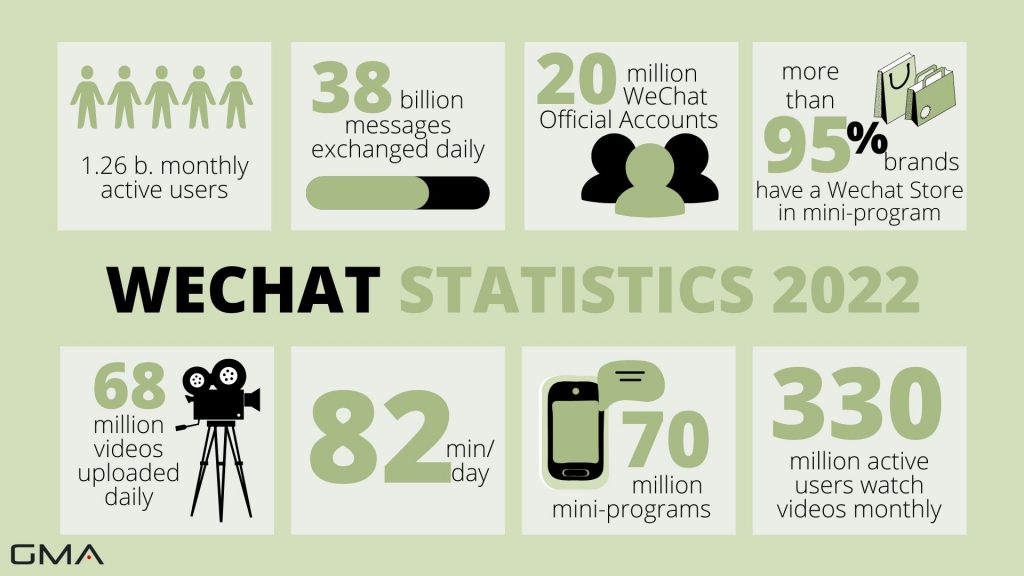
Rise of social media for brand communication
More than 1.26 billion people use WeChat in China — the country’s largest messaging and Chinese social media app. Part of the reason for this is the app’s diversified capabilities in e-commerce and financial services.
The app’s e-commerce capabilities have created a marketing use case for entrepreneurs. As a result, public relations through the app is a PR strategy that needs to be the meat and potatoes of any attempt at public relations in China.
In short, unlike in many other parts of the world, both the Asia Pacific region and western countries, any attempt to deliver a brand narrative must be done online in new media outlets. Any attempt to do PR activities via printed or broadcast media won’t create engagement and address the target audience as well as Chinese social media platforms.

In the United States, Internet users are much more driven by practical needs, using the Internet as a tool to send e-mail, buy and sell goods, conduct research, plan trips, and pay bills.
Chinese netizens use the Internet more for social reasons, with significantly higher use of forums and blogs, Internet chatroom, and video, music, and entertainment sites.
They check all information online before making a purchase of any foreign company’s product, and the Internet users community on the Chinese Internet is one of the fastest growing in the world.
Online public relations help you control how Chinese consumers perceive your brand, it is in fact one of the most cost-efficient ways to manage your reputation and lead the narrative about everything that touches your brand.
Press releases are the key to gaining control over your brand image online
Media outlets in China need help from companies to get noticed, and the best way of doing that is through press releases. The release will often serve as part journalism, part content marketing for bloggers who want their website talked about by media channels without having an expensive advertising budget or personal connection (such as industry insiders).
The more articles and press releases you publish, the better your site will rank in search engines. And that means an extra boost for all of those links from other sites pointing toward yours!
Baidu SEO will help to grab the attention
One of the key takeaways about public relations in China is that as the Chinese market matures, it is becoming more competitive. Thanks to Guochao and the development of the competition, foreign brands’ PR practitioners cannot simply rely on their image to win market shares and must more than ever rely on a solid marketing strategy.
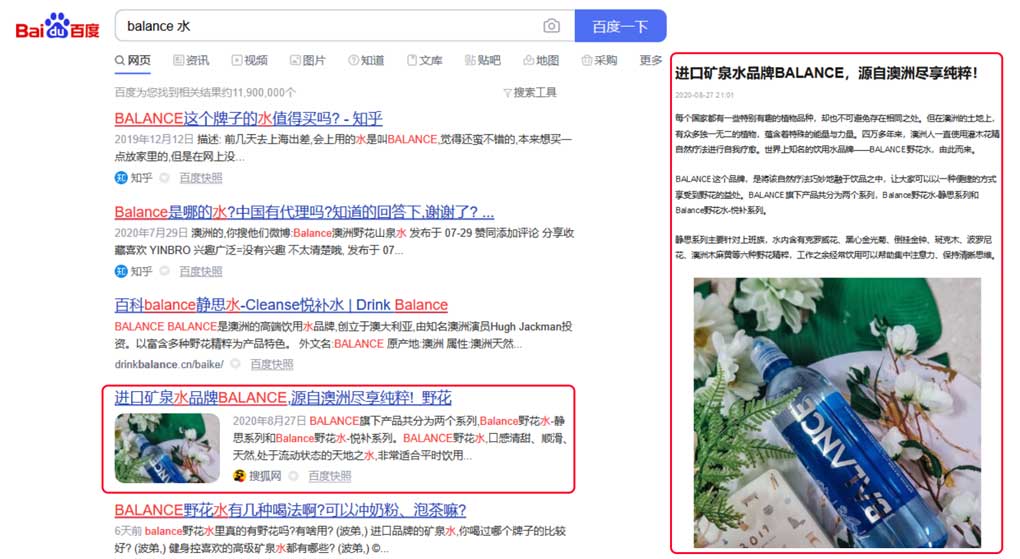
The key to getting your content published on high-quality news websites is through the use of SEO marketing strategies. With these powerful tools, it’s possible for you or any company in need either gain more attention from potential customers by reaching their eyes before they read something else (a competing brand) and increase traffic flow which will lead them directly towards purchasing products/services;
Public Relations in China: Best Practices
Public relations in China can be successful if you follow these actionable tips from our PR agency:
Optimize Content for Baidu
Google may be the number one search engine in the West. In China, however, Baidu takes the top spot. It is for this reason that you need to optimize your business content for Baidu to get the best results from your PR campaigns.
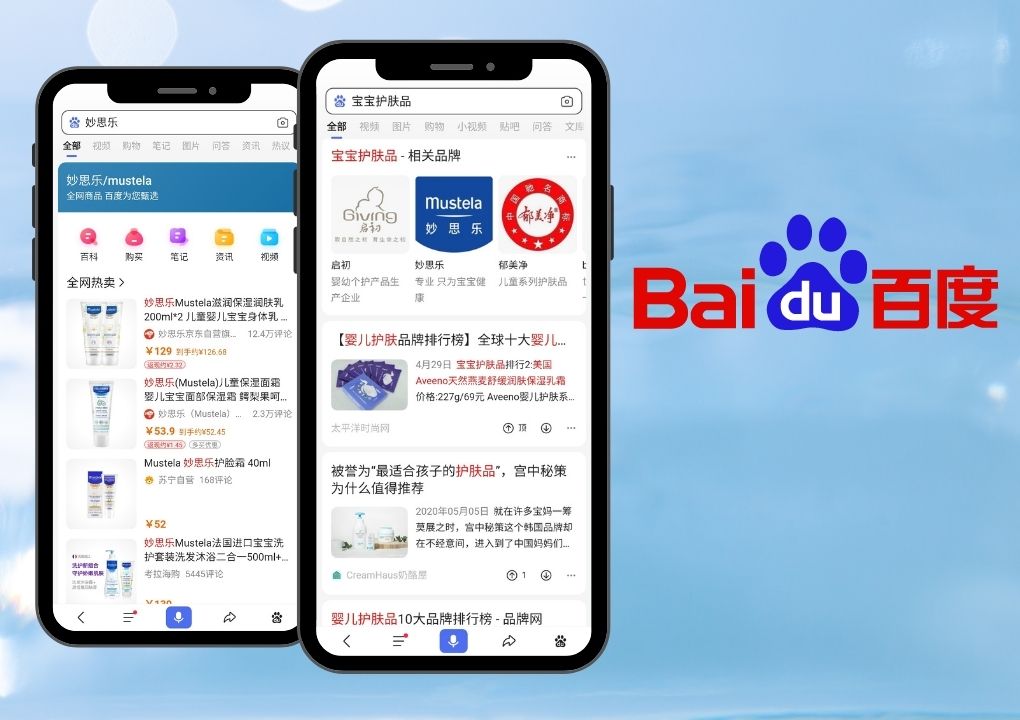
Like SEO in the West, SEO for Baidu requires your PR team to know the best practices for the site and content optimization for the Chinese search engine. There is no one-size-fits-all strategy for marketing and China public relations actions that any managing director of foreign brands should take to have a successful SEO strategy in Baidu.
The best SEO optimization strategy for Baidu will vary depending on your specific needs and goals. However, there are some general tips that can help you get started on the right foot.
Hire Native-Speaking Content Strategists, Writers, or Contributors
Although you might hire Chinese speakers in your country, or you might try to learn the language yourself, it’s best if you hire native speakers to take care of your public relations and marketing strategy in China. Nobody will have a better idea of what resonates with the public other than the public themselves.
Hire a marketing agency or a specialized Chinese PR agency that has experience working with international brands. Chinese consumers are a specific target group that needs proper market analysis and marketing and PR strategy, but only a few companies decide to hire professionals in the field.
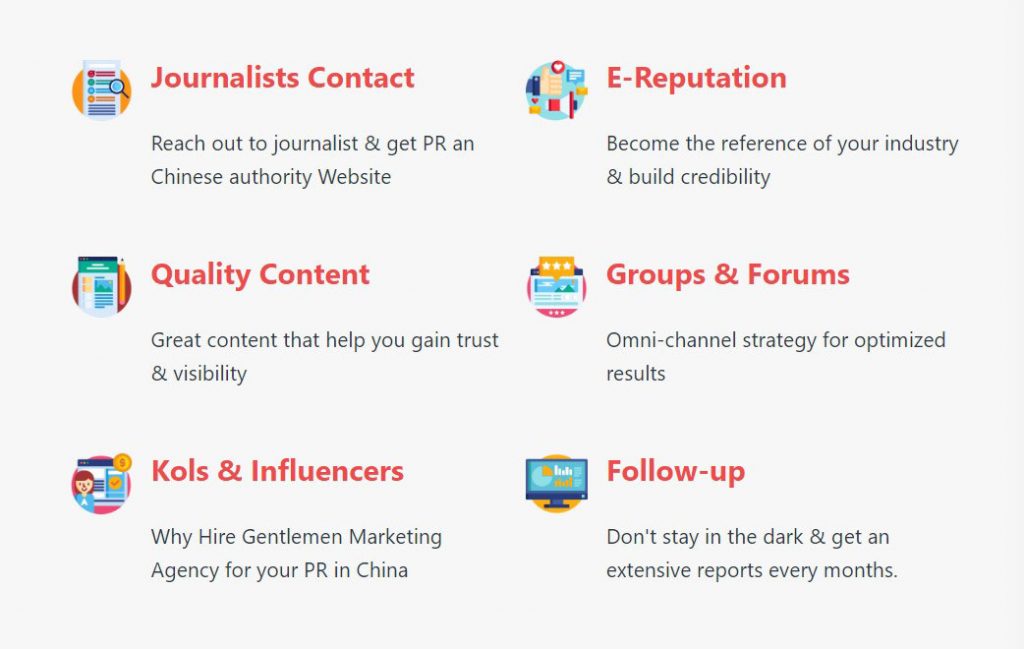
You need content writers, creators, or strategists from China that know how to promote foreign brands in their motherland. Along with their natural usage of the country’s language(s), they also know how to best convey messages to your target audience.
Most importantly, being Chinese citizens, they will also know what messages may be frowned upon by the authorities. They will take care of the press release aspect, take care of press conferences and work on the best marketing strategy that’s fit for the China market.
Leverage Chinese Social Media
As mentioned earlier, printed media is growing more obsolete in China, virtually by the day. Social media continues to take over and will continue to do so for many years to come.
Social media has become an important part of communicating with the public for many companies and organizations in China. For companies doing business in China or with Chinese customers, it is important to understand how social media is being used in PR there.

The country’s population is growing to be one of the most social media-literate in comparison to other countries. If you want to tell your brand’s story to the broadest possible audience, social media is the place to do it. This is one more reason to sign up for that WeChat business account. If you don’t know how to do it, hire a marketing agency to help you with the task.
Localize Whenever Possible
Contrary to popular belief, China has diversity not just in its cities but in the customs and values of the people. For this reason, communication with people in Beijing may not be the same as how you would do it in a place like Xian.
Foreign brands need to be aware that China is a huge and very diverse country that requires different communication methods while doing digital marketing for different audiences there.
You also need to remember that Chinese people have their own social media apps, like WeChat or Xiaohongshu, both very powerful digital marketing, and advertising tools for your public relations and marketing strategy.
Most social networks that we are used to in the West, like Instagram or Facebook, are being blocked by the commercial market forces. Work in tandem with your native-born content creation team, coordinate, and consult on how best to deliver a message like a press release or press conference to different places.
A simple way to localize your message is to communicate content in a city’s dialect or language (which may not necessarily be Mandarin).
Manage a PR Crisis with Online Reputation Management (ORM)
A public relations campaign of a company can go wrong to the extent that it incites hostilities in the audience. We can attribute this to China’s cultural sensitivities.
Situations arising from poorly chosen words or ill-received content can quickly escalate into boycotts of companies, online assaults, and bad reviews. Indeed, businesses face these risks in the West. In China, the same is true for all foreign brands — but by a factor of 10.
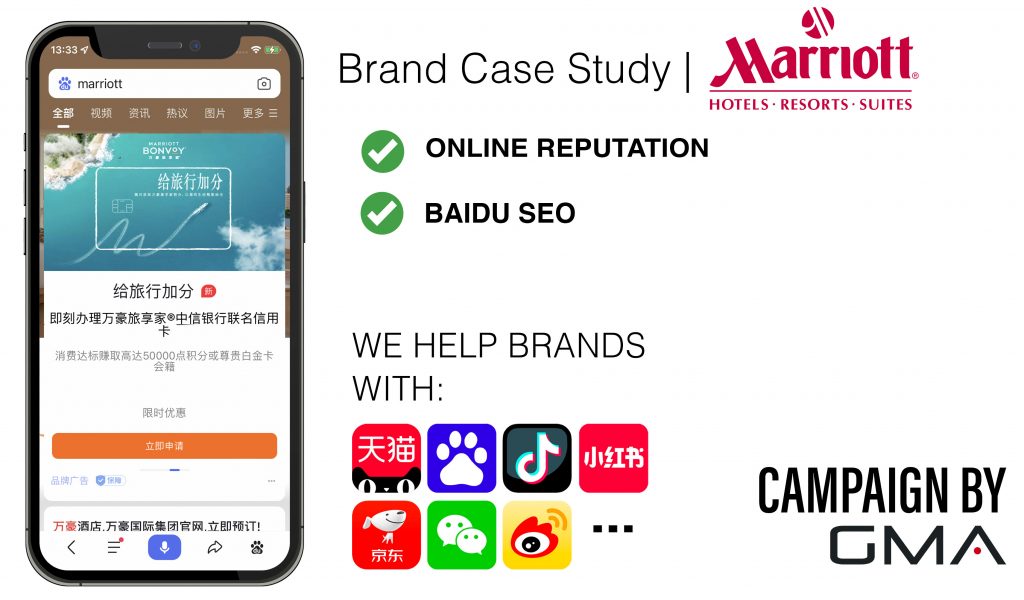
Luckily, there are ways to manage a public relations crisis even after it occurs. As you might imagine, the way for most companies to do it in China is online.
Fill the Web and Social Media with Positive Content
One of the best ways to outlast a negative statement about your brand in China is by releasing positive content consistently on all online media channels. Doing this for a long enough period can cause the negative news story about your company to fall out of fashion.
Seek the Aid of KOLs
Word-of-mouth is an important driver of action and sentiment in China. However, for a media-literate audience, one good word about your brand from a KOL can turn things around for all domestic and foreign brands.

Seeking the endorsement of an industry leader or KOL can quickly turn things around for your public relations. KOLs have the tools and skills necessary for dispelling rumors and quelling controversies about your brand in China. Of course, the challenge is getting hold of one.
Go About Public Relations in a Way that Does Not “Rock the Boat”
The best way to manage a public relations crisis is not to get into one in the first place. Some easy ways to prevent a PR crisis are:
- Being mindful of the portrayal of the Chinese netizens if you use them in ads
- Steering clear of polarizing subjects in China (like forced labor and Xinjiang)
- Not using maps, especially ones that show Hong Kong, Tibet, and Taiwan as independent countries
- Not saying anything related to religion, sex, pharmaceuticals, the government, or state media services
“Do as the Chinese Do”
At the end of the day, Chinese public relations comes down to doing as Chinese companies do. These are:
- Knowing the boundaries of the law in China
- Acting and going about public relations accordingly
- Being mindful of the content of your company
- Seeking the opinion and endorsement of those who know the country best
International brands should target their public relations activities to the people first. Instead, they should establish a rapport with the government. If a PR campaign aligns with the authorities’ policies and agendas, they can then establish the brand image and reputation of the Chinese people.
Establish your brand as many would in China, reap the benefits, and celebrate as you would in the West.
Want to establish a Public Relations Strategy for China?
Contact-us! Not only do we have years of experience in the matter of public relations in China, but also our extended network of Chinese media allows us to offer our clients quick results at a reduced cost.







